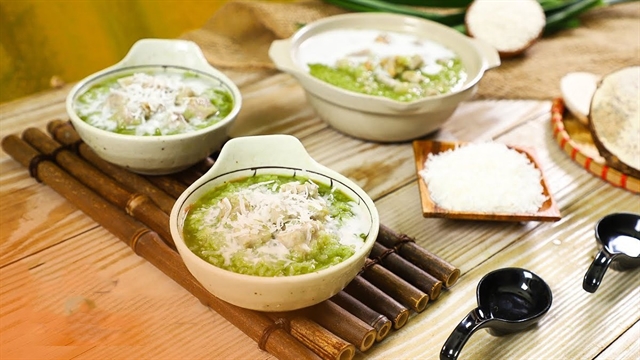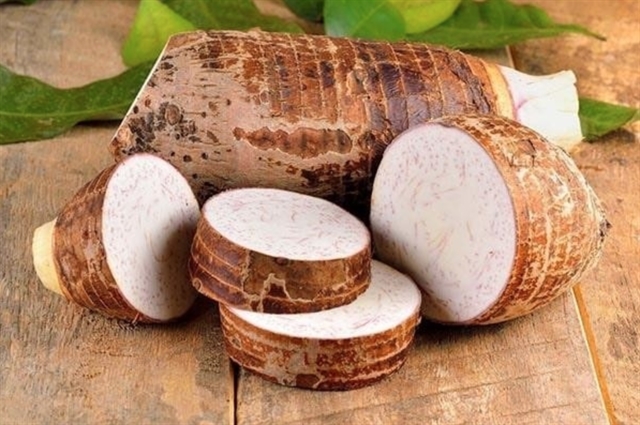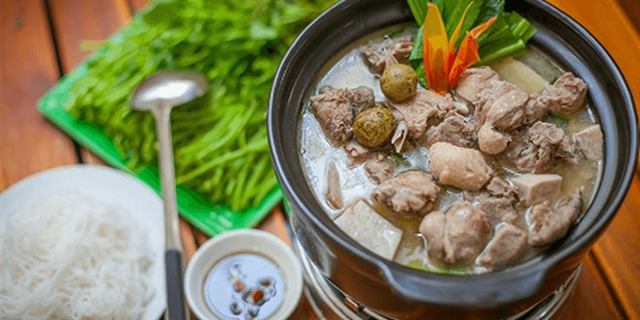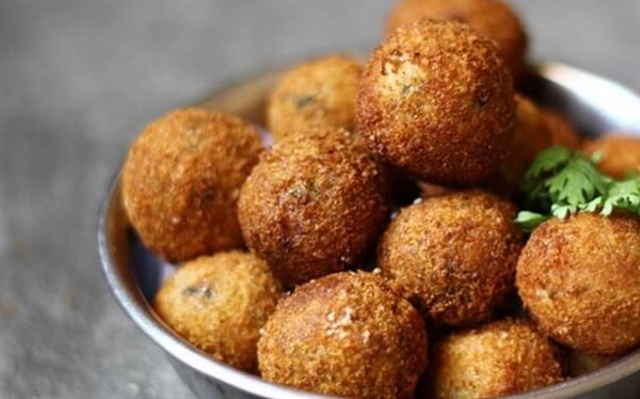 Life & Style
Life & Style

Thanh Hà
This humble but versatile root has been designated as a superfood of winter.
Taro can be included into many tasty, great and delicious dishes. It is very nutritious for health because it is enriched with vitamins, has protein, calcium and gives you energy, said Master Chef Phạm Tuấn Hải.
Dishes made with taro include porridge, taro hotpot, taro pork rib soup, taro stew with duck, fried taro balls (known locally as khoai môn Lệ Phố ) and many others.
 |
| Taro sweet porridge is a favourite dish of many foodies. Photo dienmayxanh.com |
“If someone asks me about which porridge I like best, I will immediately answer that taro porridge is my favourite dish because it is so amazing, fragrant and savoury,” said Hải.
Ingredients to make the dish include taro, sugar, green bean, lotus seeds, pandan leaves and ginger.
Hải said he would never forget how to cook this dish and was taught exactly how by his mother, who made it with sticky rice.
 |
| Vietnamese taro roots can be cooked into many amazing dishes such as taro stewed with duck, deep-fried taro, taro hotpot and others. |
First she would boil the sugar and put minced ginger into the pot, stirring it well before adding the steamed sticky rice and taro pieces. Everything would go into the pot and then she would continue to cook it on a simmering fire, stirring continuously sometimes for up to half an hour, said Hải.
In his opinion the perfect pot of taro porridge is yellow in colour, with the sticky rice well-cooked, while the taro is soft but it still retains its original size of two fingers.
Taro porridge is among traditional Vietnamese porridges. It was first noted hundreds of years ago being cooked both for festivals and in daily meals. In the olden days Vietnamese had known to cook taro with coconut juice and sugar for a sweet and nutrition dish. It is not only a favourite meal but also demonstrates the creativeness of locals’ culinary abilities, said Hải, noting that nowadays housewives often cook the dish with green or black beans to increase its flavour and nutritional values.
 |
| Taro stewed with pork ribs is a traditional popular dish that Vietnamese love to enjoy in winter to warm up their body. Photo dienmayxanh.com |
Deep-fried taro balls
Deep-fried taro balls are a famed snack of Hà Nội, beloved not only by youngsters but also adults, said Hanoian, Trương Thị Hảo.
She said the dish is now increasingly available at family parties, weddings and birthdays and can be found at many shops and supermarkets.
“The dish, with different fillings such as minced pork or mung bean, is considered the favourite and delightful food for almost all locals who eat it daily for breakfast, as a bar snack for drinkers and as a desert at a wedding party," said Hảo, noting that this kind of taro is porous and is sweeter.
 |
| Deep-fried taro balls have become a specialty of Hanoians. Photo tracuuquyhoach.com |
Lệ Phố is the name of the taro species from the northern province of Bắc Kạn, originally from China and brought to Việt Nam centuries ago.
Taro with duck meat is one of traditional favourite dishes of Việt Nam. With its special flavour and delicate blend of duck meat and taro, the dish is also a symbol of tradition and family, said Hảo.
“Despite being busy, my children and grandchildren often ask me to cook the dish at weekend. Its tasty, great and savory has helped to unite us together. My husband and I are very happy, because we all feel warmer about each other when we eat this dish,” she said. VNS




